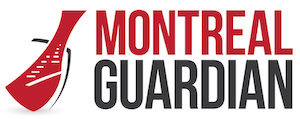There has been a wave of uncertainty around the world as the president of the largest economy increased tariffs for most nations. Canada has been one of the top trading partners for the United States, which means its economy is one of the most affected. Because of this, more people are looking closely at their money to find ways to make small changes that help. People in Montreal are paying down debt, spending more carefully, and investing online. These are just some of the smart moves they’re making to handle their money better in 2025.

Canada’s Economy in 2025
Canada’s economy closed 2024 on a strong note but has seen ups and downs in 2025, with tariffs and trade wars with the United States dominating events. Canada also struggles with rising unemployment, housing costs, and a shifting relationship with its biggest partner.
Across Canada’s urban areas, the younger population is fast embracing online investments to make their financial goals a reality. They are not just learning about investing but are actively exploring markets to find potentially profitable opportunities. They are making moves to improve their economic conditions using online platforms such as OANDA, a CFD broker, and other fintech apps for financial literacy.
How Montrealers Make Smarter Financial Decisions
For decades, access to investing platforms was reserved for the well-informed few and the wealthy. However, modern digital platforms allow users to access powerful tools for investing and managing their finances, helping investors make smarter decisions.
A 2023 FAIR Canada Investor Survey showed that 80% of investors started investing before age 35, indicating the popularity of investments among Canada’s younger demographics. Canadians are also attracted by tax-free savings accounts (TFSAs) and Registered Retirement Savings Plans (RRSPs), which many take advantage of to start their investment journey.
Although objectives differ, investors have the same goal: to make more returns and build financial capacity. To achieve these, they need to improve their financial literacy through a combination of learning and execution.
Online Investments
Online trading and investments offer the opportunity to make returns from financial markets without investing like the big institutions. With retail investment now available to anyone with an internet connection, many people are turning to financial markets to find opportunities. Online investments include trading CFDs on commodities, currencies, bonds, shares, ETFs, etc., providing exposure without owning the underlying assets.
The crypto market is popular among Canada’s younger population, who show more interest in Bitcoin’s stellar performance. The advantage of online platforms for investment includes access to many markets from a single platform, low fees, high liquidity, control over trading decisions, and efficient tax reporting.
These key areas impacting online investment are essential for Canadian investors to build their finances in 2025. The global economic condition and the current North American markets offer opportunities to make returns from falling or rising prices of goods and assets.
For example, the current tariff changes have wiped trillions off U.S. stock markets, but investors who went short on those stocks would have made tidy returns.
Financial Literacy
There’s no financial independence without literacy. In Canada, more people are learning about personal finance and how they can improve their finances in different ways. Thanks to digital technologies, Canadians have unprecedented access to information on personal finance, budgeting, and investment strategies through online platforms like YouTube, trading and investment academies, free resources provided by brokers, and free content shared by successful investors.
Online communities and groups are springing up, providing new and experienced trades with a meeting point to share ideas and knowledge. In Canada, November is dedicated to financial literacy, and it is a month when online platforms intensify their campaigns to help increase the financial literacy rate.
Smart Budgeting
The prices of goods and services in Canada have increased several percent in the last few years despite modest inflation projections for the year. Canadians are taking a better approach to their expenses through smart budgeting.

The Royal Bank of Canada (RBC) Financial Independence Poll showed that 51% of Canadians have a financial plan, while 49% invested in 2024. These figures show the impact of increasing financial literacy and budgeting for everyday costs and investments.
Demo Trading
Inventors need tools to practice strategies and hone new skills without real market exposure. Demo trading is one of the most essential tools trading platforms like OANDA offer. Canadians can safely execute their strategies through demo accounts, using virtual funds to mirror financial market conditions without actually risking any money. Financial literacy becomes more effective with demo trading.
Economic Projections and Key Investment Watches for 2025
In January, the Bank of Canada predicted an economic growth of 1.8% for 2025 and 2026, while the International Monetary Fund has a 1.4% real growth projection. Key events in 2025 are the Bank of Canada’s monetary policy rates, the impact of tariffs on local and international trade, and investments across major industries.
Canada’s green energy, IT, healthcare, and tourism industries are poised for growth, and investment opportunities will increase in those markets. Investors should also watch the housing market and infrastructural developments in 2025.
Investment and Canada’s Future
Canada’s agricultural, manufacturing, services, and natural resources extraction industries and sectors will be key to unlocking new growth levels. All hands must be on deck to ensure the country reaches its potential as a global power and empowers Canadians. Online investments will play a crucial role in helping Canadians achieve financial independence and build a strong, resilient, and high-performance economy.
